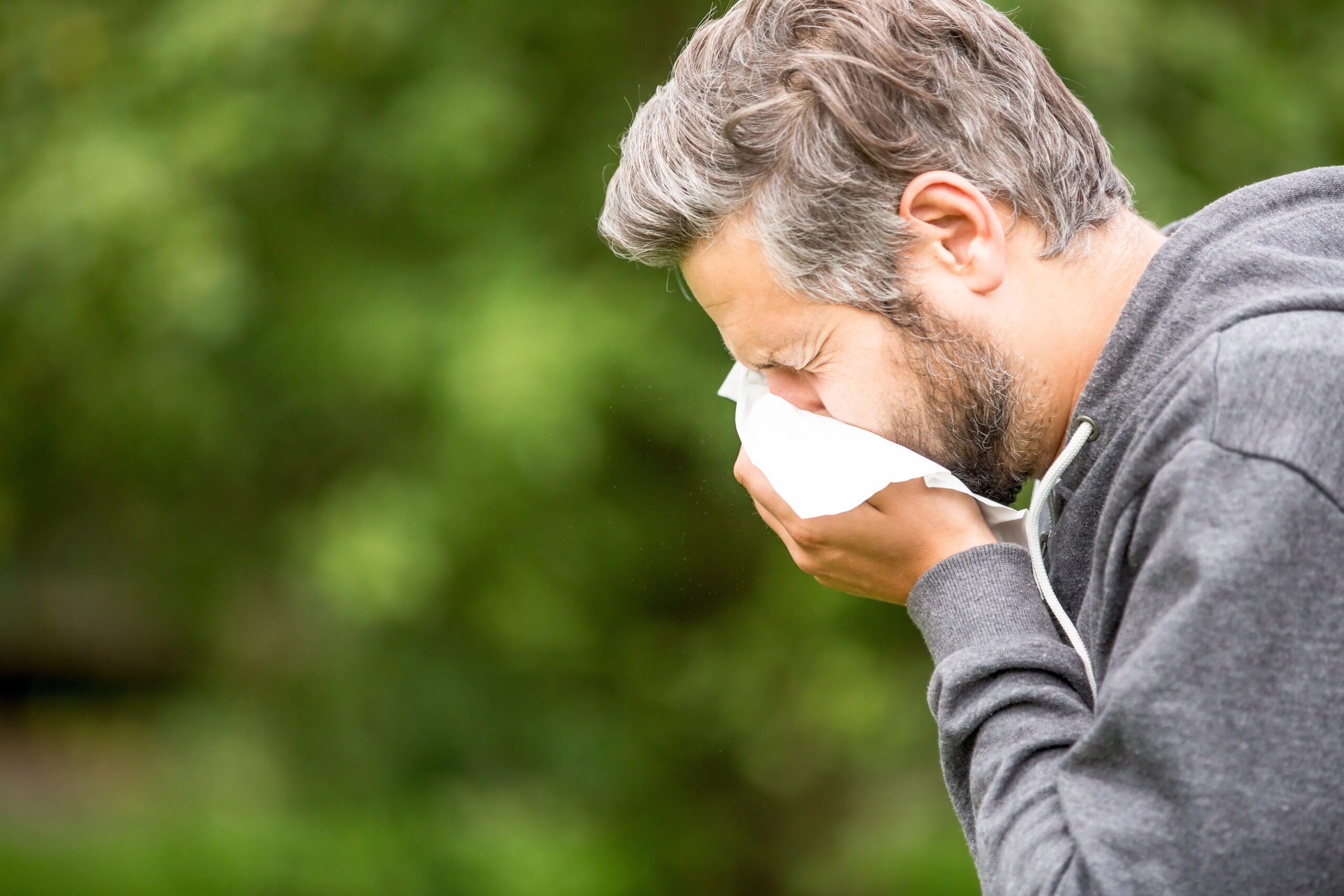Allergies can slow you down, but they don’t have to. Read on and find out how Beta-Glucan provides relief for allergies.
Sometimes allergies are seasonal or due to environmental factors like dust. Regardless, when allergies strike, it can feel like you’re stuck in slow motion. Often, allergy relief involves OTC meds that leave you feeling fuzzy and drowsy. But what if there was another way to reduce the sneezing, itching, and watery eyes?
It may come as a surprise, but beta-glucan has shown to provide relief for mild allergies. You can find beta-glucan in foods like mushrooms and brewer’s yeast. However, supplements using beta-glucan from baker’s yeast, like in our Glucan85Plus, have the optimal molecular chain for maximum relief (Beta-Glucan 1,3/1,6-D). Read on and discover how beta-glucan supplements may reduce the severity of your allergies today.
Table of contents
- How Are Allergies Related to Your Immune System?
- How Can You Naturally Boost Immunity to Allergies?
- Does Beta-Glucan Help With Allergies?
- How Does Beta-Glucan Help With Allergies?
- Try A High-Quality Beta-Glucan Supplement For Allergy Relief
How Are Allergies Related to Your Immune System?
Many assume the immune system just keeps us from getting sick, but it does a lot more than that. Your immune system is like the Security Department for your body. It does threat assessments for things like injuries, bacteria, toxins, etc., and then determines what sort of response is needed.
For example, a sprained ankle is usually accompanied by localized swelling. That’s because your immune system assessed the trauma and sent additional white blood cells to the area. All this extra fluid also serves a protective purpose since you’re less likely to continue using that ankle while it’s stiff and swollen. This also makes it easier to heal.
But what about allergies? How are allergies related to your immune system? Are allergies a sign of a weak immune system?
In the simplest sense, allergies happen when your immune system becomes a bit too vigilant. An allergen can be any type of foreign substance (pollen, insect bites, pet dander, certain foods, etc.) that your immune system recognizes and responds to. Some common allergens don’t bother people at all, but others can experience itching, sneezing, watery eyes, etc.
Allergies aren’t necessarily a sign of a weak immune system, but in severe cases, some individuals experience life-threatening allergic reactions called anaphylactic shock. Anaphylaxis is when your immune system releases a flood of chemicals in response to certain allergens. Unlike mild allergic reactions, however, this response can cause life-threatening drops in blood pressure, blocked airways, rapid or weak pulse, rash, etc.
Someone experiencing anaphylactic shock will require an injection of epinephrine and most likely a trip to the emergency room. There are, however, natural ways to boost immunity to mild allergies.
How Can You Naturally Boost Immunity to Allergies?
If your allergies are severe, it’s always best to discuss management options with a healthcare professional. For mild allergies, however, there are several ways to naturally boost your immunity to them.
-
- Avoidance. Sadly, this option is often easier said than done. If you can easily avoid the allergens that cause you grief, then no worries! But if you visit your grandma every few days and are allergic to her cat, things can get tricky.
- Antihistamines. These over-the-counter capsules and creams help block the effects of histamines to provide allergy relief.
- Nasal Sprays. While some of these can be purchased at your local drugstore, steroid and antihistamine options can sometimes require a prescription.
- Decongestants. These over-the-counter medications help shrink swollen blood vessels to reduce congestion caused by allergies.
- Allergy Shots. Also known as “allergen immunotherapy,” these shots are a type of long-term therapy designed to decrease sensitivity to certain allergens.
Sometimes one of these options will help provide relief, other times a combination is necessary. The biggest issue is that some of them only treat certain allergy symptoms (like decongestants) and others may cause unwanted side effects (drowsiness, rebound congestion, etc.).
Items like bee pollen or fermented foods have potential allergy-relief properties because of their immunomodulation properties. A supplement we’re particularly excited about, however, is beta-glucan.
Does Beta-Glucan Help With Allergies?
Yes! But what exactly is beta-glucan?
Beta-Glucan is a type of soluble fiber found in certain plants, bacteria, yeasts, and fungi. Already, it’s fairly common for people to consume foods with beta-glucan because of its immunomodulation properties. For those with allergies, it can even help reduce the severity of reactions.
In a double-blind study comparing allergic responses to ragweed, participants who supplemented with beta-glucan showed “improved allergy symptoms, overall physical health, and emotional well-being” after just four weeks. Another study looking at treatments for allergic rhinitis found that subjects treated with beta-glucan showed fewer of the cytokines involved in this type of allergic inflammation. In addition, cytokines known to suppress this type of allergic response increased with beta-glucan.
How Does Beta-Glucan Help With Allergies?
The immunomodulation properties of beta-glucan are, quite honestly, thrilling. What’s particularly exciting is that we’re still discovering all the different mechanisms by which it provides allergy relief. Currently, we understand that beta-glucan modulates the immune system in a way that boosts allergy resistance. Let’s break it down.
Our immune system produces IgE antibodies in response to allergens. These antibodies are basically giant WANTED posters telling the rest of the body about the invaders (allergens). Different immune cells receive that message and attack the allergens with histamines and other inflammatory chemicals (this is when you experience a runny nose, congestion, etc.).
Beta-Glucan, however, can reduce these antibodies so your immune system isn’t on such high alert all the time. Plus, we’re still discovering more and more about how beta-glucan treats and/or prevents allergies. There’s even a surprisingly large amount of anecdotal evidence of people reducing their allergic responses to pet dander!
Some allergy-relief options just treat the symptoms, but beta-glucan helps relieve allergies at their source–the immune system! Generally, those who properly supplement with beta-glucan experience less nasal congestion, reduced nasal swelling, and less eye irritation.
Try A High-Quality Beta-Glucan Supplement For Allergy Relief
Many of the food sources we mentioned earlier don’t contain beta-glucan in the optimal molecular chain. When extracted from specific strains of baker’s yeast, however, beta-glucan can provide powerful immune support. If you, or someone you know, are interested in trying beta-glucan for allergy relief, make sure to get your hands on a high-quality supplement with Beta-Glucan 1,3/1,6-D.
If you couldn’t already tell, we’re pretty big advocates for beta-glucan. That’s why we created Glucan85Plus with 500mg of the optimal molecular chain of beta-glucan (1,3/1,6-D) and a minimum of 85% purity. Shop our beta-glucan supplement, Glucan85Plus today to experience the life-changing benefits of a healthy immune system in a convenient, easy-to-swallow capsule.
Be sure to check back soon for even more info on the powerful benefits of Beta-Glucan!



















